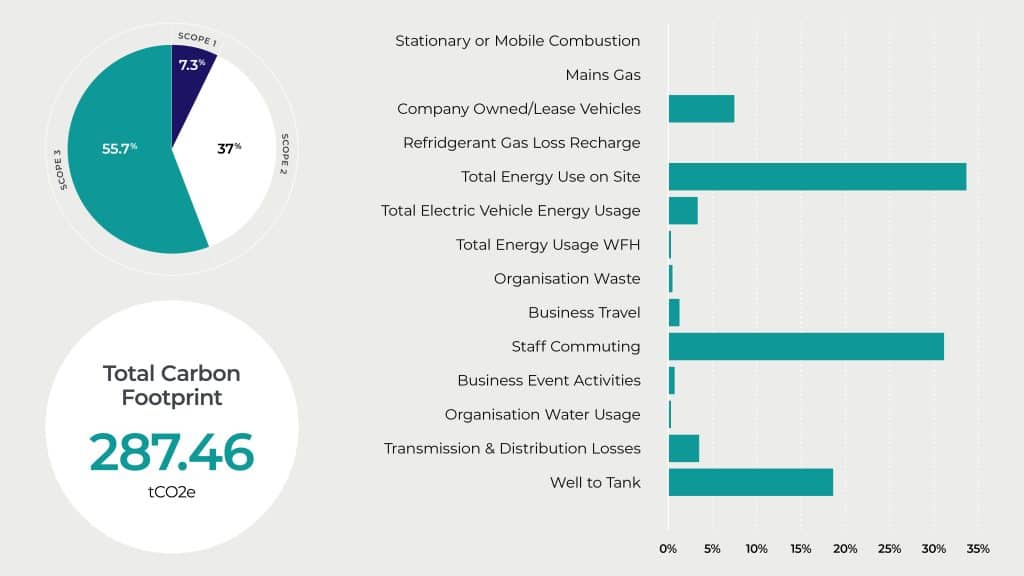We’re thrilled to have become the first in our sector to achieve approved Science Based Targets for near-term and long-term carbon reduction.
ACS is a sustainable business, and we are proud of our commitment to protecting the planet through our work – be that our sustainable factory operations through to recycling materials. We’re also a carbon neutral business, offsetting our greenhouse gas emissions through internationally verified carbon offsetting projects.
As great as that is, it’s sadly only a short-term solution, and that’s why we are taking meaningful action to decrease our greenhouse gas emissions permanently, and why today’s accreditation is such great news.
Through the process, we realised the urgent need to decarbonise quickly – establishing a Net Zero roadmap that would meet the goals of the Paris Agreement. In doing so we carefully assessed our current carbon footprint in its entirety, building on a baseline reporting year in 2022 – something from which all future targets will be based.

Scope 1
All of our Scope 1 emissions originated from company-owned or leased vehicles, with no other such emissions occurring during the reporting period. It is worth noting, however, that these emissions were halved from the previous year (2021-2022: 42,096.93 kgC02e) due to our recent company-wide shift towards electric vehicles.
While our transition to electric vehicles has contributed to a significant reduction of direct emissions-to-air, it has led to an increased demand for electricity and the associated carbon emissions generated during its production and processing. We are mindful of this issue and are committed to addressing it in our Scope 2 reduction strategy.
Targets:
By 2030, our objective is to completely eliminate Scope 1 emissions by transitioning to a fully electric company vehicle fleet. Additionally, we plan to maintain zero direct emissions-to-air from our manufacturing processes.
Scope 2
Our company’s energy usage during the reporting period and the use of electric vehicles were responsible for all Scope 2 emissions, following a location-based approach to reporting.
Our goals to automate production processes and shift to 100% electric manufacturing will impact our energy demand and associated Scope 2 emissions. As such, we must continue to improve our energy efficiency and support the UK National Grid’s decarbonisation efforts.
Since 2019, we have distributed approximately 220,000kWh of renewable solar electricity to the National Grid from our on-site solar panels. We will also continue supporting off-site renewable energy projects to reduce the carbon intensity of the National Grid.
Targets:
We aim to reduce our Scope 2 emissions by 50% by 2030 and achieve Net Zero by 2050. Our objectives include investing in energy monitoring technology, energy storage systems to power our electric vehicle fleet, and increasing our on-site solar energy capacity.
Scope 3
Scope 3 emissions are the primary contributors to our carbon footprint and will pose the biggest challenge in our global race to Net Zero.
Targets:
By 2030, we aim to reduce our Scope 3 emissions by 50% and make significant strides towards our Net Zero by 2050 goal.
We will achieve this by introducing a number of initiatives such as;
- Improving business travel efficiency by facilitating virtual meetings, shortening routes where in-person meetings are necessary, ride-sharing, and increasing the use of public transport for unavoidable journeys.
- Reducing the environmental impact of staff commuting by promoting bike-to-work and electric vehicle salary sacrifice schemes to all staff members.
- Increasing water efficiency in our operations through innovative water-saving technologies.
- Reducing operational waste by evaluating our waste hierarchy and reusing in place of recycling.
- Decreasing transmission and distribution losses through on-site electricity generation.
- And we’re set for reporting in the future, with our 2025 Embodied Carbon report set to provide an in-depth review of the environmental impact of our purchased materials and services, with the aim of creating a positive cultural change in the way our industry measures and reports upon its products and materials.
By committing to the Science Based Targets initiative, we are also committing to measuring and reporting on our progress annually, and we look forward to bringing you on our journey as we each strive to protect people, place and planet.

